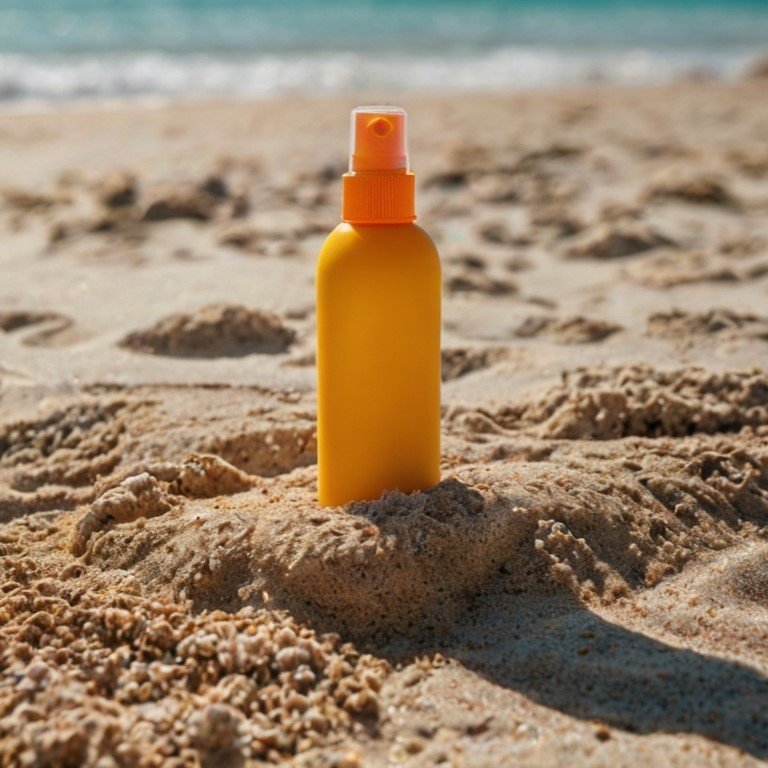Morning vs. Night Skincare: What's the Difference?
What you apply in the morning should differ from what you apply at night. The primary reason? Your skin’s needs vary depending on the time of day. While morning routines focus on protecting your skin from environmental stressors, nighttime routines emphasize repair and regeneration.
Why You Need Different Skincare Routines for Day and Night
Your skin faces different challenges in the morning versus the evening. During the day, it’s exposed to harmful UV rays, pollution, and other environmental stressors, making protection a priority. At night, when your skin isn’t dealing with these external factors, it enters repair mode, allowing for deeper treatments and recovery.
Morning Skincare Routine: Protection
Your morning skincare routine is all about creating a protective barrier to shield your skin from damage throughout the day. Here are the essential steps and the purpose of each:
1. Cleanser
Cleansing in the morning helps to remove any excess oil and sweat that may have accumulated on your skin overnight. A gentle cleanser is typically enough to freshen up your skin without stripping away its natural oils.
2. Antioxidant Serum
Antioxidants, such as vitamin C, protect your skin from environmental damage by neutralizing free radicals (unstable molecules that damage cells). This can prevent premature aging, reduce inflammation, and keep skin looking bright and healthy.
Tip: Vitamin C is a popular choice for morning routines as it brightens the complexion and enhances sun protection when combined with sunscreen.
3. Moisturizer
Applying a lightweight moisturizer in the morning helps to maintain hydration throughout the day. Even if you have oily skin, a water-based or gel moisturizer can provide the right amount of hydration without feeling heavy.
Tip: Look for moisturizers with hydrating ingredients like hyaluronic acid or glycerin.
4. Sunscreen (The Most Important Step)
Sunscreen is non-negotiable in any morning skincare routine. UV rays can cause sunburn, hyperpigmentation, and accelerate aging, even on cloudy days or when you’re indoors with indirect light.
Tip: Choose a broad-spectrum SPF 30 or higher and apply it as the final step in your routine. Physical sunscreens with zinc oxide or titanium dioxide are suitable for sensitive skin, while chemical sunscreens can offer a lightweight finish for oily skin.
Night Skincare Routine: Repair and Replenish
At night, your skin’s needs shift to repair mode. During sleep, your skin naturally regenerates, making this the ideal time for products that promote cell turnover, hydration, and healing. Here’s what to focus on at night:
1. Cleanser: Remove Makeup and Impurities
In the evening, it’s crucial to cleanse more thoroughly to remove makeup, sunscreen, dirt, and pollution that’s accumulated during the day. Double cleansing is recommended if you wear makeup or heavy sunscreen.
Step 1: Oil-Based Cleanser – An oil or balm cleanser effectively breaks down makeup and sunscreen, especially around the eyes and T-zone.
Step 2: Water-Based Cleanser – Follow up with a gentle gel or cream cleanser to remove any remaining impurities without over-drying.
2. Toner
Toners can help restore your skin’s pH after cleansing and add a layer of hydration, prepping the skin for the next steps. Hydrating or soothing toners are ideal, as they provide a base of moisture for better absorption of treatment products.
Tip: Avoid alcohol-based toners at night, as they can dry out the skin.
3. Treatment Products
Nighttime is the perfect opportunity to use targeted treatments to address specific skin concerns. This can include:
Retinol/Retinoids: These vitamin A derivatives boost collagen production, promote cell turnover, and improve texture, making them excellent for anti-aging.
AHAs/BHAs (Exfoliating Acids): These acids help exfoliate dead skin cells, unclog pores, and improve overall skin texture. Use 1-2 times a week if your skin is sensitive to avoid over-exfoliation.
Hydrating Serums: If retinoids or acids are too strong, hydrating serums with hyaluronic acid or niacinamide can replenish moisture and calm irritation.
4. Moisturizer
A richer moisturizer at night helps lock in all the benefits of your treatment products and prevents moisture loss. As your skin repairs itself, it needs ample hydration to optimize this process.
5. Eye Cream
The skin around the eyes is thinner and more prone to dryness and wrinkles. Using an eye cream with ingredients like peptides, caffeine, or hyaluronic acid can help reduce puffiness and hydrate the area overnight.
Why Consistency Matters
Consistency is key in skincare. Both routines should be followed regularly to achieve and maintain results, as the benefits of skincare products often build up over time. A consistent morning routine protects your skin each day, while a consistent night routine allows it to recover and rejuvenate.


